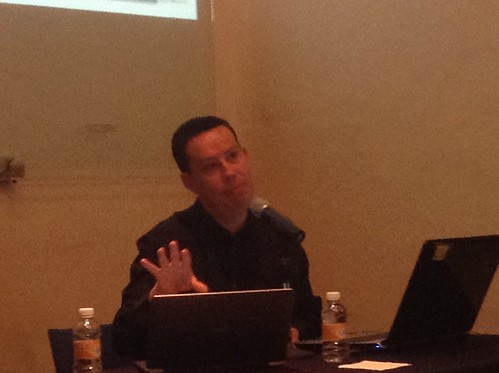One of the things I’ve noticed at conferences, workshops and seminars is that we tend to overestimate our abilities to give a talk within a short time frame. I see this at MPSA, ISA, AAG, and all other scholarly conferences I attend. We KNOW in advance that we have only 10 minutes, 12 minutes at the very most, and yet we still want to cram a 90 minute talk in 10 minutes.
Since I just completed three weeks of back-to-back-to-back academic conferences, I thought I’d offer some tips (to see my entire Twitter thread, just click anywhere on the tweet I show below).
People, let me give you a few pointers about how to give a killer talk at a conference with 10-12 minutes as your allocation.
— Dr Raul Pacheco-Vega (@raulpacheco) April 20, 2018
2) don't spend 7 minutes in context – don't spend 4 minutes in literature review 3) NEVER go over your allotted time 4) clearly state PUZZLE
— Dr Raul Pacheco-Vega (@raulpacheco) April 20, 2018
8) when moderator says 2 minutes, go IMMEDIATELY to Results slide and explain Implications as you conclude and show Conclusions slide.
— Dr Raul Pacheco-Vega (@raulpacheco) April 20, 2018
9) when moderator says STOP, you should STOP. 10) don't talk down to your audience – we are specialist, just not in this specific area
— Dr Raul Pacheco-Vega (@raulpacheco) April 20, 2018
These tips, obviously, are intended to help presenters give better talks. An additional commentary that I think is valuable and I didn’t include at the moment of tweeting include the notion of rehearsing the talk beforehand. This is particularly important because it allows the presenter to learn how long their presentation will really take.
Mind if I add something? Please rehearse your presentation beforehand! You'll have a better understanding of how long it takes to cover each slide, will have a chance to come up with some examples and will be better prepared to avoid "academic karaoke".
— Cecilia Sierra (@psicsierra) April 20, 2018
I noticed I made a mistake and did a 9) and 10) TWICE, so here are the other 2 tips, which complete the set of 12 tips.
9) Conclusions should re-state what you learned through paper BUT add surprising twists as you undertook the research 10) Don't over-explain
— Dr Raul Pacheco-Vega (@raulpacheco) April 20, 2018
Hopefully these tips will be useful to fellow academics.


0 Responses
Stay in touch with the conversation, subscribe to the RSS feed for comments on this post.